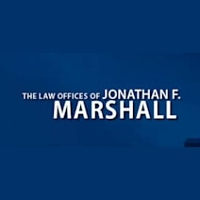Expungement is a legal term for the process that allows individuals to clear certain offenses from their criminal record. In essence, it is completely removing a conviction or an arrest from an individual’s record as opposed to sealing a record which simply makes the information invisible to the general public while retaining it on file for some organizations to be able to access, such as law enforcement. Expungement allows individuals to put their past behind them and get a fresh start, which greatly improves their prospects for employment, housing, and other opportunities.
As with any state, in New Jersey, the laws governing expungement are detailed and specific. Not all offenses are capable of being expunged. If you have been convicted of a crime, it is important to understand the rules related to expungement and whether your criminal offense can be expunged or not before beginning the process. A NJ expungement lawyer will be able to discuss your specific case with you to help you determine if your record is eligible to be expunged.
What Criminal Offenses Can Be Expunged in New Jersey?
New Jersey law allows for the expungement of various types of criminal records if they meet certain conditions. Here are the main categories of offenses that can be expunged:
1. Arrests Not Resulting in Conviction – If you were arrested for a crime but not convicted, you can generally have your arrest record expunged. This would include cases where the charges were dismissed, dropped, or resulted in acquittal.
2. Municipal Ordinance Violations – If you are convicted of a municipal ordinance violation it is eligible to be expunged. These types of crimes are typically considered to be minor infractions, such as noise violations or public intoxication.
3. Disorderly Persons Misdemeanors – You have the ability to have up to five disorderly persons offenses expunged from your record. These types of offenses include things like petty theft, simple assault, and possession of a small amount of marijuana.
4. Indictable Felony Offenses – It is possible to have one indictable offense to be expunged from your record as long as you meet the specific criteria and the offense is not excluded by law. These types of offenses include certain non-violent crimes like theft, burglary, and forgery.
5. Juvenile Delinquency Records – It is easy to make mistakes when you are young, but these should not prohibit you from having a bright future. Juvenile records can be expunged as long as they meet the same conditions as adult offenses. Juvenile records can carry a range of offenses committed by individuals under the age of 18.
6. Certain Drug Offenses – It is possible to have some drug offenses expunged from your record, provided that you are a first-time offender who has been convicted of possession or use of controlled dangerous substances (CDS). This offense’s ability to be expunged is also dependent on the substance and quantity involved. It is best to speak with an experienced expungement lawyer near you to determine whether your offense is eligible or not.
7. Expungement of Pardoned Convictions – If you have been convicted of a crime but then receive a pardon from the governor of New Jersey, you can seek expungement of those pardoned offenses.
It is important to note that even though offenses can be eligible for expungement, it is not an automatic process. The individual must petition the court and the waiting period has expired, and they must meet certain conditions to maintain eligibility for expungement.
The waiting period for expungement varies depending on the type of offense. For municipal ordinance violations the waiting period is two years, for disorderly persons offenses it is five years, and for indictable offenses it is six years. Some of these waiting periods can be lessened if you meet certain criteria and if you are arrested for an offense that does not lead to conviction then there is no waiting period.
The conditions that need to be met include completing your sentence, including paying any fines or restitution, and completing any probation. You must also not be charged with any new offenses during this waiting period.
What Cannot Be Expunged in New Jersey?
There are certain offenses and records that are not eligible for expungement in New Jersey. These will stay on your record indefinitely and include:
-
Murder
-
Manslaughter
-
Treason
-
Terrorism
-
Producing or possessing chemical weapons, biological agents or nuclear or radiological devices
-
Anarchy
-
Arson
-
Kidnapping
-
Rape and other sexual offenses
-
Forcible sodomy
-
Endangering the welfare of a child by engaging in sexual conduct
-
Selling or manufacturing child pornography
-
Perjury
-
False swearing
-
Robbery
-
Embracery (attempting to influence a juror)
It should also be noted that any traffic offenses including DWI convictions are also not eligible for expungement.
Speak With A Lawyer About Expunging Your Record
Expungement offers a valuable opportunity for individuals in New Jersey to clear their criminal records and move forward with their lives. While many offenses are eligible for expungement, serious crimes such as violent offenses, sexual crimes, and certain public office-related offenses are excluded. Understanding the specific conditions and requirements needed to expunge a record is essential for anyone considering going down this road. If you believe you are eligible for expungement, it is important to reach out to an expungement lawyer in NJ for a consultation, as they can provide guidance and increase your chances of a successful application.




